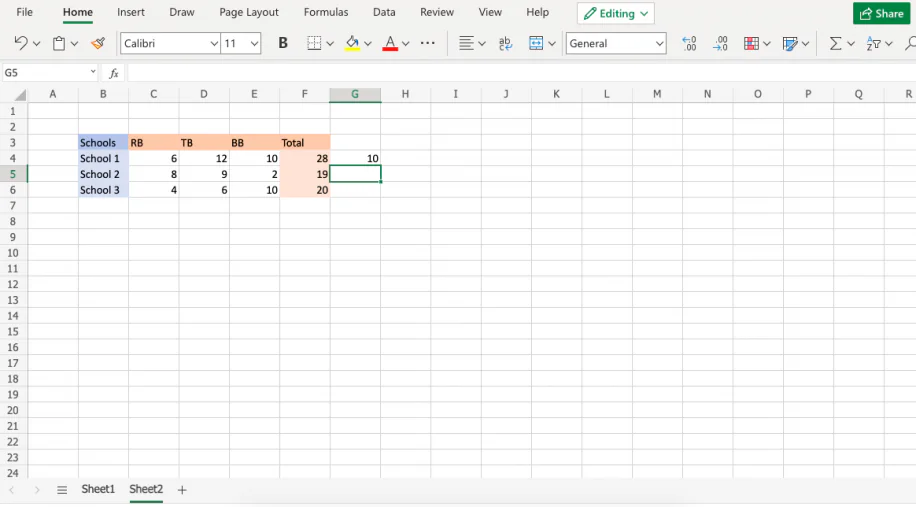Transfer Data Seamlessly Between Excel Sheets: Easy Methods

Are you familiar with the constant back-and-forth of data manipulation when working with Excel spreadsheets? Whether you're managing financial records, customer lists, or any other dataset, transferring data between sheets efficiently can streamline your workflow significantly. In this blog post, we'll explore several effective methods to transfer data from one Excel sheet to another, ensuring your work remains both accurate and efficient.
Understanding Excel Sheets

Excel, a part of the Microsoft Office suite, is renowned for its powerful data management capabilities. It allows users to organize, analyze, and manipulate data across multiple sheets within a single workbook. Understanding how sheets work and relate to one another is crucial before you attempt to transfer data.
- Workbooks are Excel files that contain one or more worksheets (or sheets).
- Worksheets, or sheets, are the individual tabs in an Excel workbook where you enter and store your data.
💡 Note: Sheets can be linked, meaning that when data in one sheet changes, the linked data in another sheet updates automatically.
Method 1: Copy and Paste with Cell References

The simplest method for transferring data involves copy and paste, but with a twist: using cell references. Here’s how to do it:
- Select the cells you wish to transfer.
- Right-click and choose ‘Copy’ or use the keyboard shortcut Ctrl+C (Cmd+C on Mac).
- Navigate to the target sheet where you want to paste the data.
- Right-click where you want the data to go and choose ‘Paste Link’ or ‘Paste Special’ and select ‘Formulas’ if you want to keep dynamic links.
This method creates a dynamic link between the source and destination cells. When you change data in the original cells, the corresponding data in the destination sheet updates automatically.
Method 2: Using Excel Formulas

Excel formulas offer a versatile way to link data between sheets:
- To reference data from another sheet, use the formula:
=SheetName!CellAddress. - For example, if you want to link cell A1 from “Sheet1” into “Sheet2”, you’d enter
=Sheet1!A1in Sheet2.
Method 3: VLOOKUP for Data Transfer

VLOOKUP can be a powerful tool for transferring data, especially if you need to pull information based on a matching criterion:
| Formula | Description |
|---|---|
=VLOOKUP(A2,Sheet1!A2:B100,2,FALSE) |
Looks up the value in A2 from the first column of the range on Sheet1 and returns the corresponding value from the second column. |

This method is excellent for scenarios where you need to transfer data conditionally.
Method 4: Using Excel’s Power Query

Power Query is a data transformation and preparation tool in Excel that can help with complex data transfers:
- Go to the ‘Data’ tab and select ‘Get Data’ then ‘From Other Sources’ > ‘From Microsoft Query’.
- Set up your query to pull data from one sheet, and then you can load it into another.
🔍 Note: Power Query can be used for appending data from multiple sheets or sources, making it ideal for large datasets.
Method 5: VBA Macros for Automation

For those familiar with VBA (Visual Basic for Applications), macros can automate complex data transfer tasks:
Sub TransferData() Dim sourceSheet As Worksheet Dim destSheet As WorksheetSet sourceSheet = ThisWorkbook.Sheets("Sheet1") Set destSheet = ThisWorkbook.Sheets("Sheet2") destSheet.Cells.Clear 'Clear destination sheet before transferring data sourceSheet.Range("A1:B10").Copy Destination:=destSheet.Range("A1")
End Sub
VBA can help execute repetitive tasks with precision, especially when dealing with large volumes of data or when custom logic is needed.
Additional Tips and Considerations

- Data Validation: Ensure that data validation is set up to maintain data integrity across sheets.
- Formatting: When transferring data, consider the formatting of cells, as styles might not always transfer correctly.
- Performance: For large datasets, consider the performance impact of complex formulas or large VBA scripts.
Transferring data between Excel sheets doesn't have to be a daunting task. By employing the methods outlined above, you can handle your data with ease, ensuring that it remains organized, up-to-date, and accurate. Remember, choosing the right method depends on your specific needs:
- For simple, static data, copy and paste might suffice.
- Use formulas and VLOOKUP for dynamic updates and conditional data pulls.
- Harness the power of Power Query for intricate data transformation and merging.
- And for automation, VBA macros offer unparalleled control.
With these tools in your arsenal, you're well-equipped to manage your data efficiently, saving time and reducing the risk of errors in your data management processes.
Can I use these methods to transfer data between different workbooks?

+
Yes, most of these methods can be adapted for transferring data between workbooks. For example, in formulas, you would reference the other workbook like this: =‘[WorkbookName]SheetName’!A1. However, VBA scripts would need some modifications to point to external workbooks.
How do I ensure that the transferred data retains its original format?

+
When copying and pasting, use ‘Paste Special’ and choose ‘Formats’ to retain the original formatting. For formulas and Power Query, formatting might need to be reapplied manually or scripted through VBA.
What if I need to transfer data in real-time?

+
Real-time data transfer can be achieved through Excel’s built-in functionality like ‘Excel Online’ or by setting up web services. Alternatively, you could use Power Query to refresh data automatically at specified intervals.